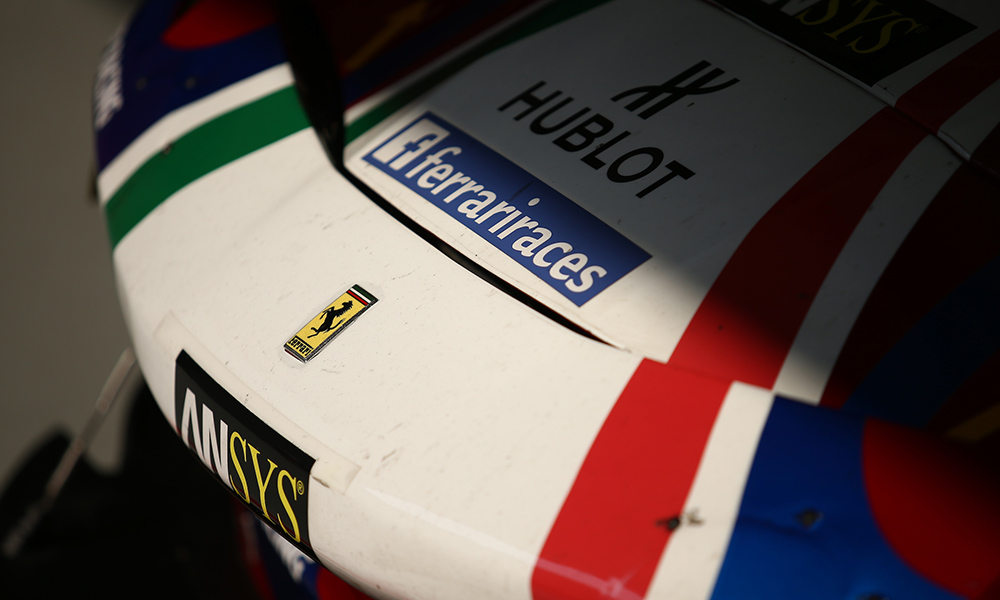
Photo: Vision Sport Agency
Ferrari will roll out with Evo kits for both its 488 GTE and GT3 cars next year, in a series of updates focused on reliability and aero performance optimization, according to Ferrari Competizioni GT technical coordinator Ferdinando Cannizzo.
The Italian automaker is the only GTE manufacturer to take advantage of the FIA’s single-permitted evolution per homologation cycle for 2018, in what will be be the third year of the turbocharged Prancing Horse in GT competition.
“It’s not a major change of the car,” Cannizzo told Sportscar365. “With these regulations we cannot change everything or improve the performance since we need to stay in the performance windows for the power and aero downforce.
“At the end of the day, the only thing you can do is improve reliability and improve the way you reach the window of performance.”
Developments have been made to the 3.9-liter twin-turbocharged V8 engine, focused on reliability, according to Cannizzo, who noted powertrain issues in this year’s Rolex 24 at Daytona and Total 24 Hours of Spa for the GT3 variant.
The most visible changes, however, will be with the 488’s new front and rear bumper, as well as adjustments to the splitter, diffuser and floor, which have all been optimized to provide improved drivability.
“We need to stay within the performance windows, so we cannot improve the overall performance of the car,” Cannizzo said. “But by looking at the ways we reach that level of performance, we adjusted a bit to have a smoother behavior, just to be a bit more gentle through the ride heights.”
Cannizzo said the biggest difference between the GTE and GT3 Evos are the adaptations to its respective set of regulations, as well as less engine development to the GT3 model.
“What we can say is that we have a common baseline and the GTE has a couple of features more because we can allow that,” he said. “It’s a different concept of car. One is made for customer racing, the other one is more for professional racing.
“We had just the time to design the stuff, send the application to the FIA, make the test in Ladoux. There’s not been a lot of tests done so far but the tests we’ve done has proven it’s worked as expected.”
While not being drawn on an exact price, Cannizzo said the GT3 Evo kit is expected to cost less than 20,000 Euros.
Ford Keeping Door Open for Evo Kit
While having opted not to use its ‘joker’ for 2018, Ford hasn’t ruled out the possibility of taking advantage of the Evo kit allowance in the future.
It’s believed the American manufacturer had evaluated homologating a different-sized turbo, due to the power restrictions put on its 3.5-liter EcoBoost V6 engine.
“We definitely looked at some things that we could do for an evolution, and we’ll always be looking at that,” Ford Performance Global Director of motorsports Mark Rushbrook told Sportscar365.
Ford’s final chance for an Evo would be for 2019, in the fourth and final scheduled year of its factory GTE-Pro/GTLM program.
Evos for Porsche, BMW, Lexus GT3 Models
Porsche, BMW and Lexus will also offer updates to its GT3 cars next year, all with varying levels of development.
An updated Porsche 911 GT3 R took part in the final two recent VLN rounds, winning the the final race of the season while running in the SPX class for yet-to-be-homologated cars.
The majority of changes, according to Head of Porsche Motorsport Dr. Frank-Steffen Walliser, are aero-related, including a new hood to provide additional front downforce.
“We tried to keep the value of the car not to make a big upgrade,” Walliser told Sportscar365. “It’s only a small upgrade. Some of them are wearables and things you’d have to change.”
While not required to purchase the updates, the majority of the GT3 cars, as well as all of the Ferrari GTE models, are expected to be in Evo specification next year.

























